Profile
Focus on Ghanaians in the Diaspora …meet Jason Bempong & Mary Nkrumah

To celebrate the contribution and achievement of personalities across various sectors, we turn attention this week to the Diaspora to tell the stories of two Ghanaians who are excelling in their respective fields, as captured by the Ghanaian American Journal.
They are Jason Bempong, a Ghanaian-Canadian artist and Mary Nkrumah, an entrepreneur making waves with her local cuisines abroad.
Jason Bempong
He is the creative director of local brand, Sleepless Mindz. The brand name, according to him, came up in 2013 when he found himself “sketching and working and then looked at the clock to realise it was four in the morning.”

Like many children of Ghanaian descent, he developed a deeper understanding of his heritage as he grew up. He learned how to draw from his father, who always kept a sketchbook around.
Throughout his childhood, he began noticing African patterns and designs worn by members of his community while attending church and family events and later learnt to appreciate the history behind eye-catching patterns.
He attended high school briefly in Ghana as a teen before settling abroad. According to him, designing the jerseys had enabled him to “come full circle and give life to what he has learned about his [Ghanaian] culture.”
Drawing inspiration from the Kente for the clothing line, he incorporates the red, yellow, green, and black colours of the Ghana flag in his designs.
“Black is for spiritual power and maturity, Yellow represents royalty and prosperity, Green for renewal, growth, and harvest, and Red represents lifeblood, passion, and strength,” he explained.
He was recently part of the opening ceremony of the Vancouver Mural Festival, a non-profit agency dedicated to artistic and cultural development, and has designed the first-ever Black History Month jersey for the Vancouver Canucks, the professional ice hockey team based in Vancouver, Canada.
Bempong says the artistic project represents what this team, city, and the people stand for. Sleepless Mindz has about 777 collections including T-shirts, long sleeves and hoddies displayed on its website.
“Follow your dreams, don’t give up. Stay sleepless and keep following the vision when people doubt you,” he says and hopes to inspire other people.
Mary Nkrumah
She was born into an entrepreneurial family. Her grandma sold kenkey while her mother was a successful baker and also a produce seller. She inherited her entrepreneurship traits from these two women in her teenage years.

“All the children would like to come to my house to play because of the food. When they come to my house, they can get bread. And we were always making fun stuff together,” she recalled.
In her teens, she set up a rice stand and later opened her own restaurant in Ghana called Oceanview Garden Restaurant in her adult life.
She got married to Jonathan Roberts, a Mount Saint Vincent professor who specialises in West African History, and later relocated to Canada to join her husband.
Mary’s desire, before moving to Canada, was to have her own restaurant. However, she got there heavily pregnant and had to spend weeks and months babysitting.
“I got denied a lot but finally we got my visa on the fourth try. I had the baby two weeks after I arrived in Nanaimo,” she said.
After welcoming their second child, Mary and her husband moved, once again, to Halifax and sent off resumes to a number of local businesses to gain culinary experience.
In 2012, she launched Mary’s African Cuisine as a stand at the Seaport Farmers Market in Halifax and followed it up with the launch of Kicks Café.
Her journey to owning a restaurant in Canada was tough as coups in the 1980s, somewhat disrupted her business.
“Flour was so expensive and was not common so, it was only bakers who were allowed to have flour. We had to wait for someone to check the bread before we could sell,” she recalled.
She again faced challenges while operating her restaurant at the Seaport Farmers Market. In 2015, managers of the market wanted to move her food stand and other ethnic food vendors from the first floor to the second floor.
The market, however, rescinded its decision to move them upstairs but they were asked to sign a $1,500-a-month lease, triple of what they used to pay.
After three years, she moved out and acquired another Café in 2018, which a year later reopened as the well-patronised restaurant with the same name they used.
“We’re nowhere near where we wanted to be. My wife works like crazy just to survive. The ones who survive are the ones who sacrifice their lives to keep the place open,” Mary’s husband, Roberts, said.
By Spectator Reporter
Profile
ROFAC creating safer communities within Ada, Madina-Adenta enclave
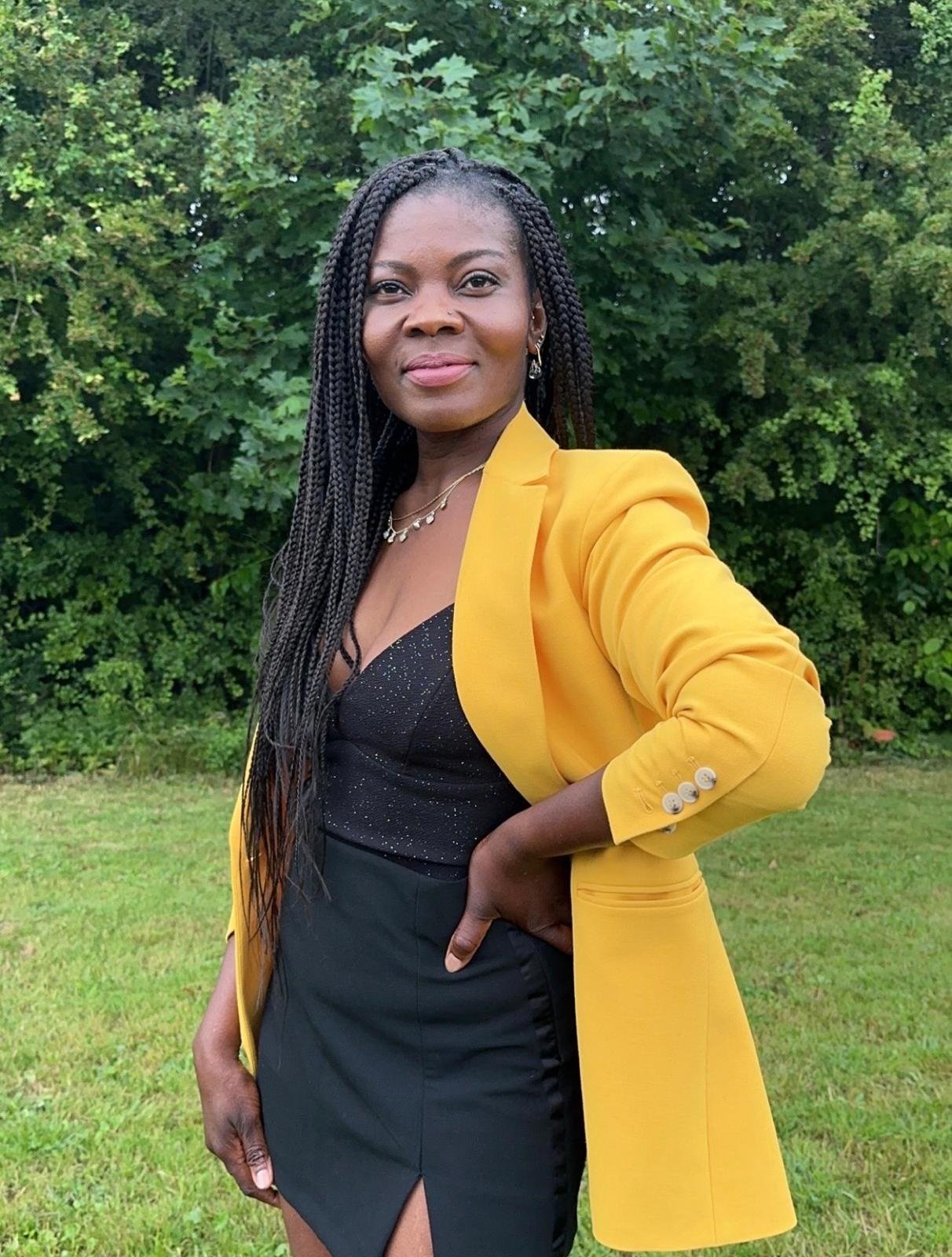
The infectious smiles and beaming grin on the faces of children is one of life’s greatest joys. It also has a way of brightening even the darkest days.
Most children have their smiles dimmed because their parents have no means of providing them with their basic needs and rights.
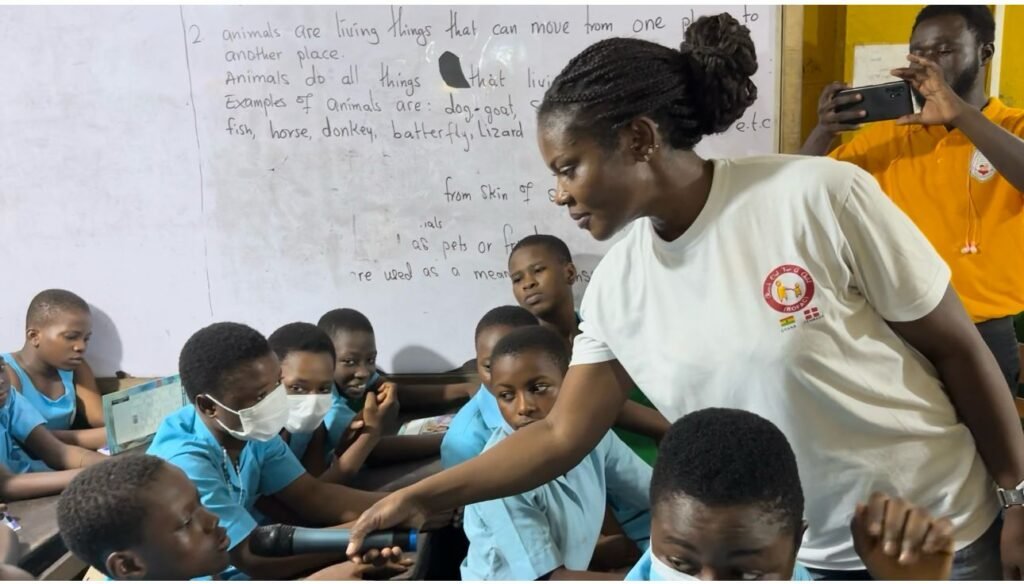
While some have lost their childhood to struggles of life, others have lost it to the cruelty of abuse, neglect and harsh realities of poverty.
Helping bridge the gap by putting smiles on faces of less privileged children, Reach out for a Child (ROFAC) is gradually becoming a household name in the Greater Accra Region, especially within the Ada and the Madina- Adenta enclave.
With the aim to improve education, healthcare, and facilities for the underprivileged group in Ghana, ROFAC believes that by improving school infrastructures, learning will be attractive to children, thus increasing attendance and providing a pleasant and safe learning environment.
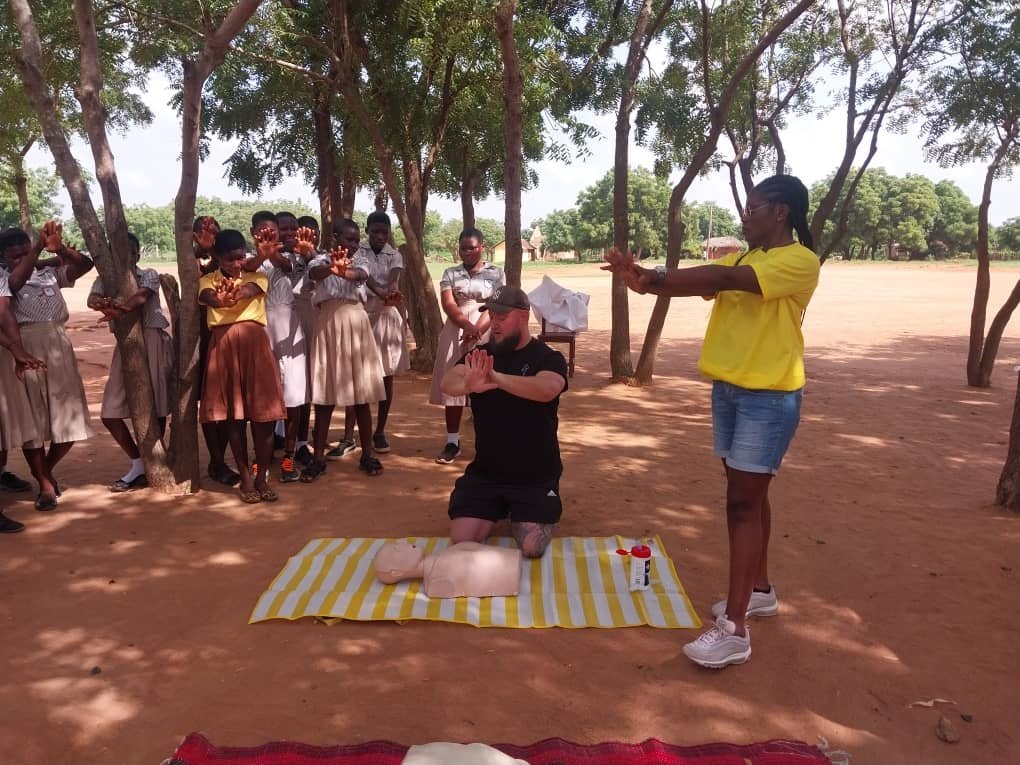
Yvonne Mawufemor Pedersen is an Acute & Emergency Care Nurse (RN, BSN), working in one of the first and largest super-hospitals in Denmark.
How it started
Life in Denmark is far from life in Ghana, where Yvonne grew up.
In 2008 while living in Denmark, Yvonne watched a “United Danish Appeal For Funds” program on television, raise funds to support third world countries, targeting all countries that appear on “The Organization For Economic Cooperation and Development” (OECD), list of third world countries, Ghana was on the list. The television program lit a fire of curiosity in me, but also a level of rage of helplessness.
Growing up in Ghana I knew of some of the challenges some children were subjected to, having to skip school to sell on the streets and in markets to help support the rest of the family. Some, runaways due to domestic violence and abuse. Inadequate infrastructure in most schools didn’t make school attractive either.
I have always had the drive of “Florence Nightingale” I wanted to do something. I wanted to contribute to shifting the narratives of the less privileged. These, and the television program I saw in 2008, contributed to a visit to Ghana, earlier than planned.
The Charity
Reach Out For A Child- (ROFAC) is a small Danish registered charity, started in 2009 by Yvonne Mawufemor Pedersen, a Ghanaian/Togolese resident in Denmark.
The charity was initially formed to raise funds for street children and head potters, after being inspired by a trip while visiting family in Ghana, and sourcing out how to shift the narratives of the above-mentioned group of people. As a result, ROFAC, Ghana was established in the same year, now our partner in Ghana.
Astonishingly, the original target funds were exceeded, and we decided to expand our support to single mothers. We started to raise funds to support the target group, meeting them in the rural areas before their migration to the capital.
As our understanding of rural communities in Ghana grew, so did the scope of our projects, because we understand, there are many factors that contribute to getting a child off the streets and into a classroom, therefore we expanded further to supporting hospitals and schools in rural Accra with teaching aids, hospital equipment’s and giving health education.
As well as lessons in first aid and CPR. This not only includes knowledge to our direct beneficiaries alone, but also that of their families and wider community.
We also, in partnership with our local partners, tailor internship programs for nursing students from Denmark to Ghana.
Our project and since 2009, ROFAC has helped many families in various communities through our numerous projects, and we are determined to ensure that this continues despite challenging circumstances we sometimes encounter.
Through her initiative, ROFAC has over the years, donated school furniture and writing boards for teachers and pupils at the Nuhalenya D/A Primary School in the Ada district, explaining that the organisation has been part of the growing process of the school since the year 2018 for which the head teacher, Mr Narh, together with teachers and some opinion leaders had always expressed their gratitude to the team.

School practicing how to resuscitate
Speaking to The Spectator in Accra last Thursday, Ms Pedersen said the organisation has also begun teaching Cardiopulmonary Resuscitation (CPR) in some basic schools, including Nuhanenya in Ada District and Pauline Queensland schools at Agbogbloshie in the Greater Accra Region to equip young learners with essential skills that can help save lives during cardiac emergencies.
CPR is a lifesaving emergency procedure performed when the heart stops beating.
Introducing the CPR programme in the basic schools, she indicated would not only empower the children with practical knowledge but also promote a culture of safety and responsibility.
In this cause, ROFAC has been advocating the subject matter to teach students the basic steps of CPR, including chest compressions and rescue breaths.
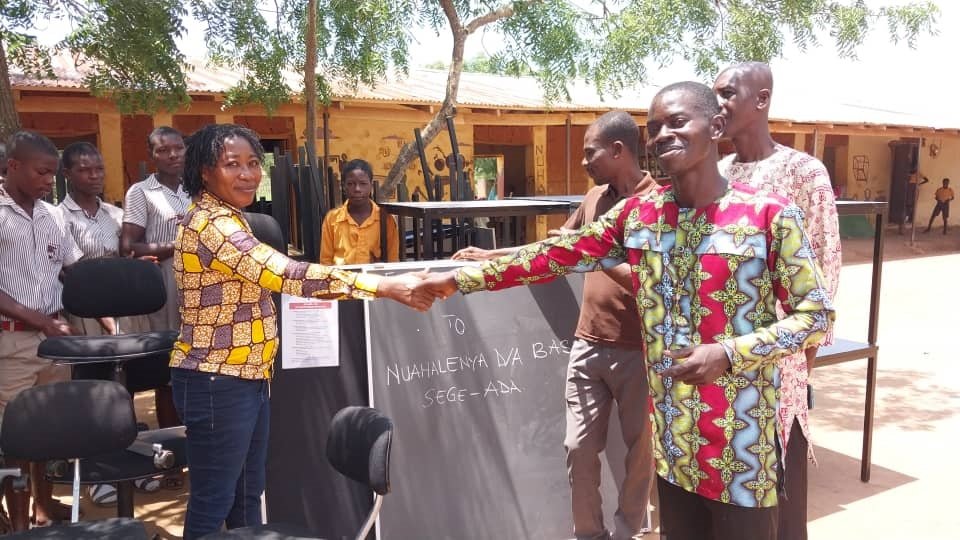
She mentioned that to educate children on recognising emergencies and the importance of seeking adult help will increase awareness of heart health.
As part of the safety measures, ROFAC has also introduce the idea of using child friendly mannequins for the learners to practice chest compressions and breathing techniques under the guidance of medical trainers.
The programme, she said, emphasises on safety, including how to avoid panic and handle emergency situations calmly. The schedule for subsequent teaching children CPR will potentially assist in saving lives within their families and communities.
“Implementing a CPR programme in basic schools is a valuable investment in public health and safety. It empowers students with essential life-saving skills and fosters a sense of responsibility and confidence. By integrating CPR education into the curriculum, schools contribute to building safer communities,” she explained.
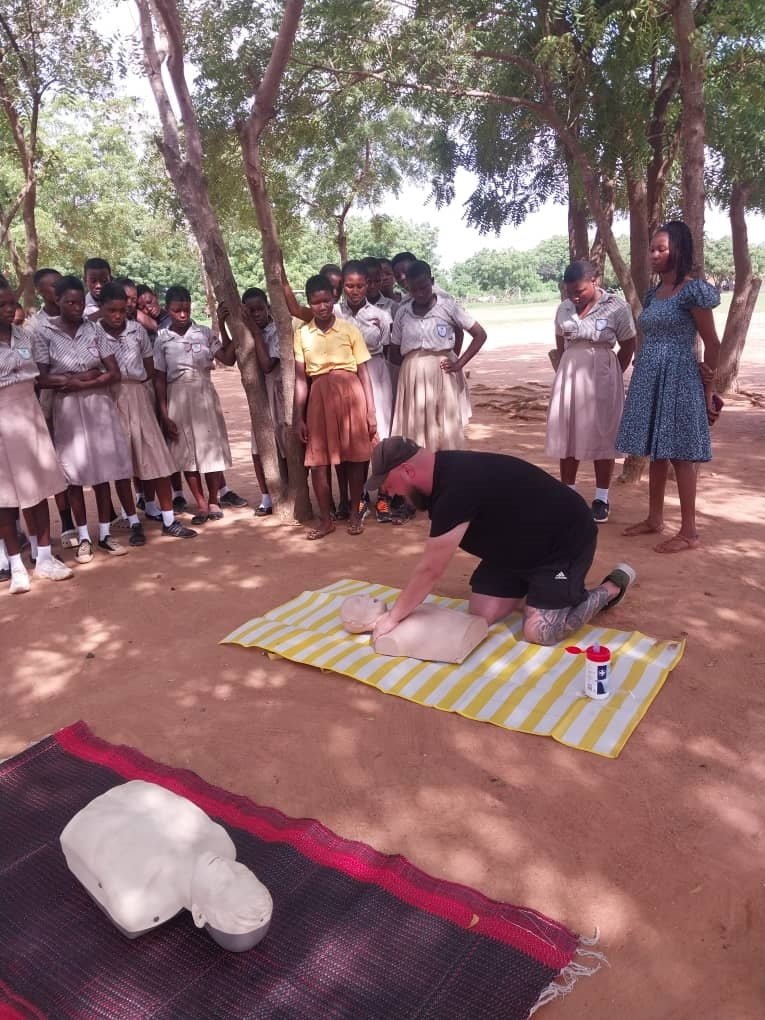
Ms Pedersen further indicated that the programme not only prepares children to respond to emergencies but also cultivates a generation of informed and proactive individuals.
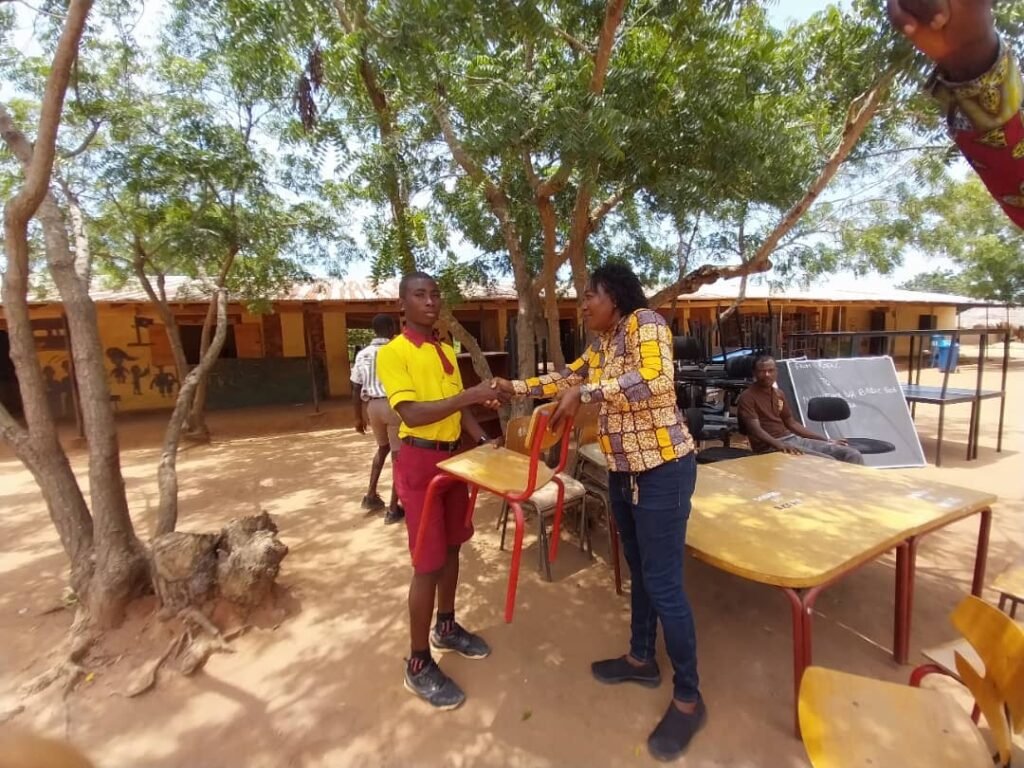
ROFAC also embarked on another project by donating a laboratory incubator to the Duala Medical Clinic based at Burma Camp in Accra.
This follows a request made by the medical doctor in charge, Dr Awura Adjoa Nunoo, for the equipment for services at the facility.
By Lawrence Vomafa-Akpalu
Profile
From passion to plate: Chichi Yakubu’s culinary journey
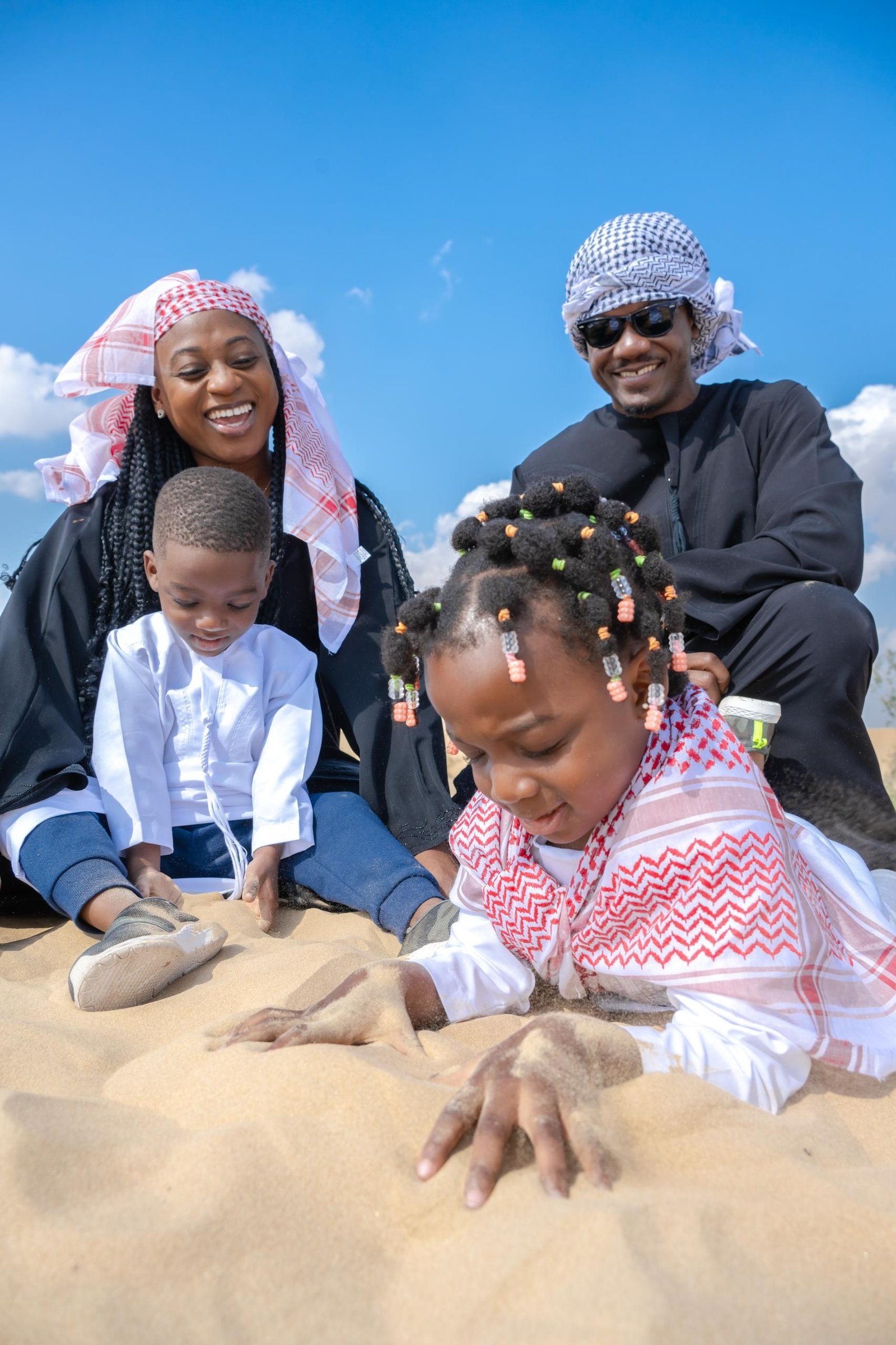
Driven by her personal weight loss journey and passion for healthy eating, Chichi Yakubu has carved a niche for herself in the culinary industry.
Her dedication and commitment has turned her business, NyoNyo Essentials, to one of Ghana’s most sought-after catering companies in the country.
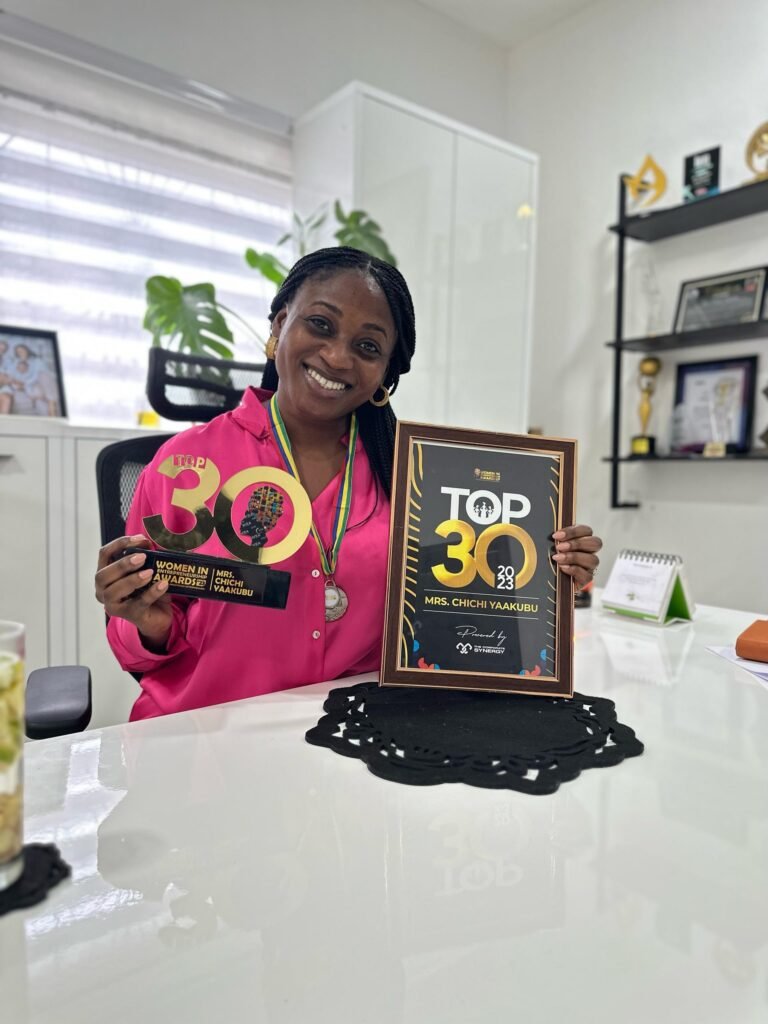
Born to a Nigerian father and a Ghanaian mother, Chichi grew up in a family of passionate women at Mamprobi Polytechnic.
Her mother, an avid cook, started a small catering business, which Chichi helped manage during vacations.
“From upper primary through to Junior High School, I will close from school to go and help my mother at her small food stand at Sakaman to do the dishes after her customers had eaten.
Her mother was known for her special dough Banku with Okro soup. Her small food joint expanded to become a chop bar where she worked at when on vacations.
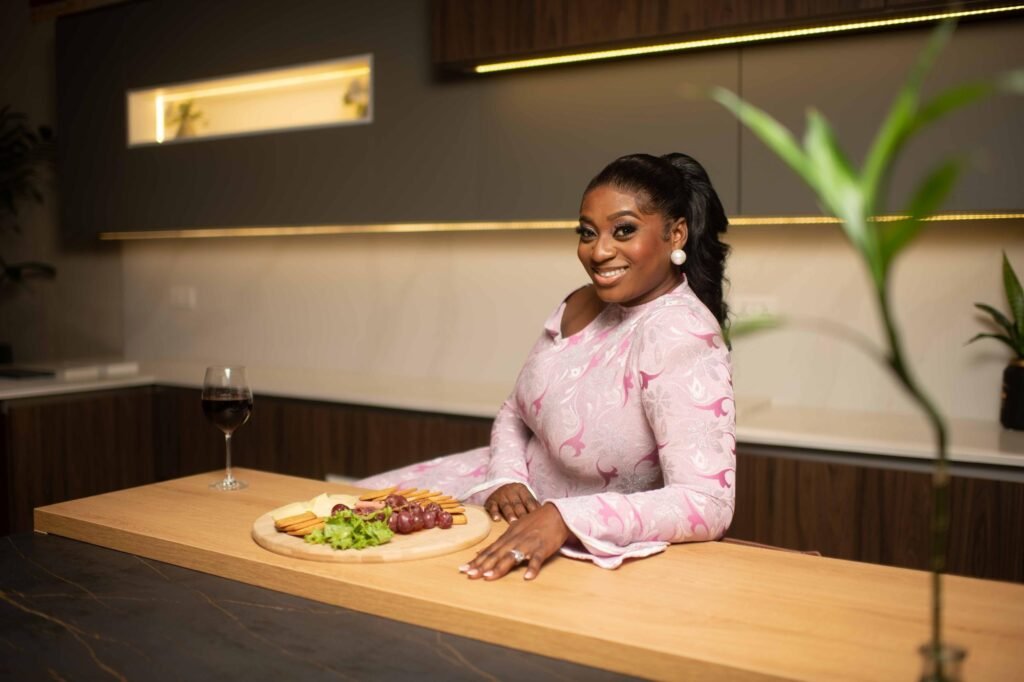
She acknowledged that, “this early exposure to entrepreneurship sparked my interest in the culinary industry.”
After her university education, Chichi embarked on a weight loss journey, which led her to explore the culinary side of things.
According to Chichi, her weight loss journey began after she realised in her late teens her family struggle with weight.
“I wasn’t going to just allow it but someway, somehow, I started gaining so much weight in my early twenties and I decided to take action by changing my lifestyle by eating healthy and exercising. That’s what got me interested in meal prepping which eventually became my side hustle,” she narrated.
Chichi later discovered the business potential of healthy food and decided to pursue it. Also her friends were curious about her weight loss strategies, which inspired her to offer meal-prep services at a fee.
With a bold vision and determination, Chichi started small, offering sandwiches, salads, and smoothies.
Leveraging social media marketing, she reached a wider audience and grew her business rapidly.
Today, Chichi is the Chief Executive Officer of Nyonyo Essential, a business that has expanded to cater for weddings, parties, and corporate events with her team providing excellent service, and word-of-mouth referrals have helped her expand her client base.
Again, Chichi has also opened kitchen centres in selected areas, providing healthy food options to Ghanaians.

She mentioned that, her mother has been her number one supporter saying “she had the blue print handed down to me. I started my business in her kitchen, and she also spared me some of her workers when the new people I had hired didn’t show up.
“My then boyfriend and now husband believed in me even when I was not sure to do it full time as I was in corporate Ghana and not doing bad.”
Chichi said one of her biggest challenges was staff retention, adding that she was of the opinion that the work itself was not much of a challenge but the people.
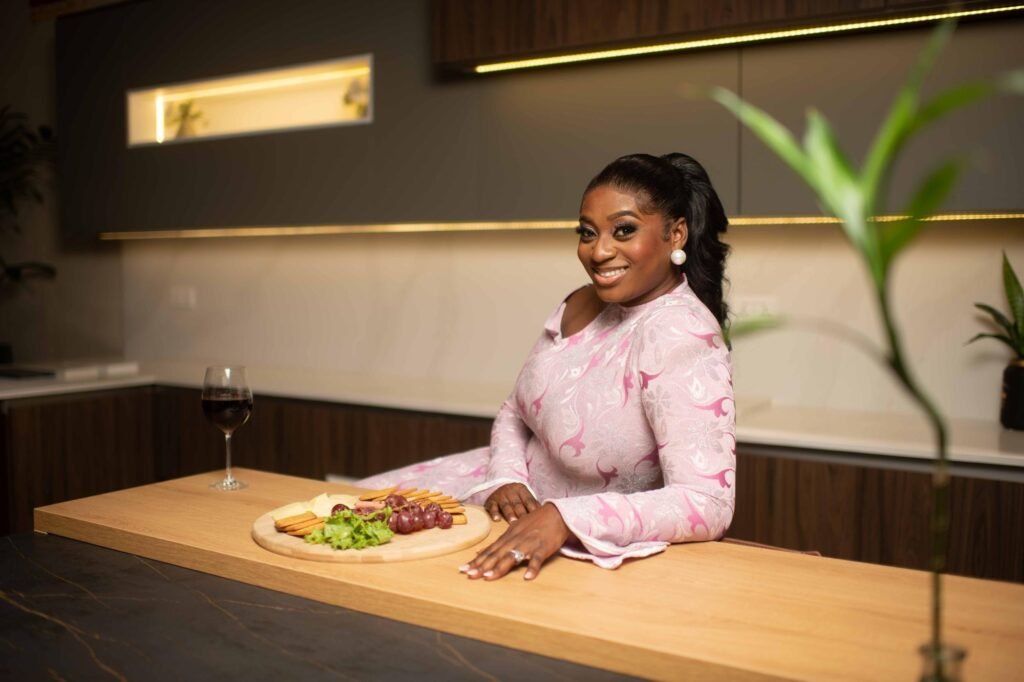
The other thing was stereotyping, saying that, “some years back people look down on food business operators, we were not regarded as professionals with others assuming we are school dropouts or just people who don’t know what we are about.”
But I was determined to change that narrative by handling work with the outmost professionalism, which I have since the beginning of my weight loss journey in 2014.
Chichi is motivated by her faith in Christ, her passion for entrepreneurship, and her commitment to empowering women.
As a wife, mother, and business owner, she strives to create a balance that reflects her vision of an all-rounded woman.
In business, she emphasised, her drive comes from a deep love for the hospitality industry and a desire to help others succeed through the business of catering by NyoNyo, saying that, “My belief that Jesus is Lord guides my decisions, ensuring that integrity, excellence, and purpose shape both my life and business.”
She urged young people, especially young women, who are just starting out in their careers or entrepreneurial journeys to believe in themselves, trust God’s timing, and be willing to put in the work.
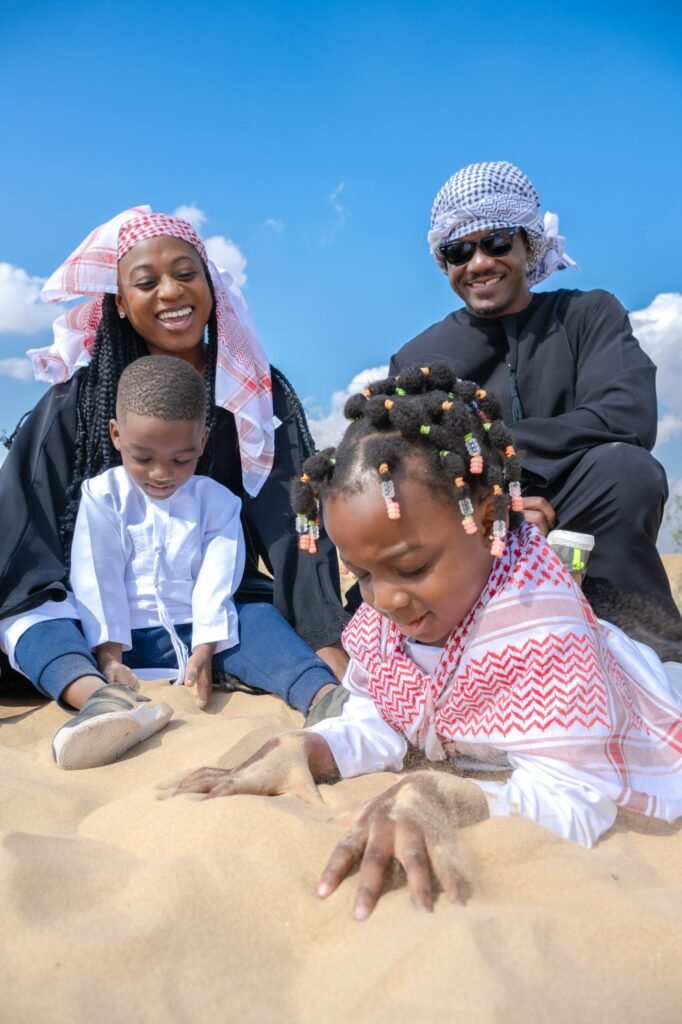
Moreover, she said “success does not happen overnight, so stay consistent, be patient, and keep learning. Surround yourself with the right people, mentors, peers, and a support system that challenges and encourages you.”
“Opportunities don’t pause for perfection. While we overthink, others take action. Start where you are, with what you have. The world moves fast—so should we,” – Chichi Yakubu advised
She again added that women should embrace their multifaceted roles without guilt saying “you can be an entrepreneur, a wife, a mother, and a sister’s keeper all at once. Most importantly, stay true to your values and never compromise on integrity. Let your journey reflect both purpose and excellence.”

Chicihi loves to spend quality time away from the noise of life in new places or go on an adventure with her family and friends.
She is a product of Christian home school, Okuapeman secondary, Central University College and Harvard University.
By Jemima Esinam Kuatsinu







